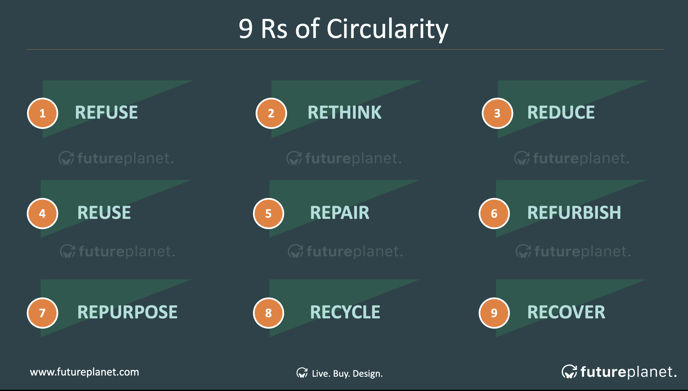7 Benefits Of The Circular Economy
The adoption of the circular economy model offers a range of both economic and environmental benefits. While the complete list of its benefits is long, in this blog post we’ll explore 7.
Not familiar with what the circular economy is? Before reading more, take a look at the short video below where Ellen MacArthur explains the circular economy.
Economic Benefits
1. Economic Growth
Research carried out by Accenture shows that the circular economy could generate an additional $4.5 trillion of economic output by 2030 through job creation and innovation. Their report outlines a range of circular business models which are primed to take advantage of this opportunity and growth, such as sharing platforms, products-as-a-service (PaaS) and remanufacturing services, to name a few. Of course, many of the economic benefits will take time and approaching these opportunities with a long-term view is vital. However, as more businesses and consumers adopt circular models and policies that incentivize their adoption are enacted, we will begin to see the economic benefits more clearly.
2. Job Creation
A 2018 report issued by the International Labour Organization found that by transitioning to a circular economy, the world could see a net increase of 6 million jobs by 2030. Jobs will be lost in the traditionally linear economy-based business, while new jobs will be created in areas such as recycling, repair, rent and remanufacturing. However, these new jobs should not be considered direct replacements as they may be in different locations and require other skills than those jobs lost. We must keep this in mind while developing policies and allocating capital to enable a just transition and reskill workers for new, prosperous jobs.
3. Business Resiliency
By switching to a circular model, businesses use fewer virgin materials and more recycled products. This reduces a company’s exposure to volatile material prices and supply chain disruptions. These supply disruptions are becoming more frequent and will continue to do so as the frequency of disruptive weather events increases over the coming decades. By moving to more decentralised circular economy models, businesses can increase resiliency and gain a competitive advantage over the companies which lag behind.
4. Increased Customer Loyalty
New business models emerging from the circular economy, such as leasing contracts and subscriptions, establish longer-term relationships between businesses and their customers, as well as increase the number of touchpoints over the lifetime of a product. As a result, companies that adopt these new circular models have the opportunity to gain competitive insights into their customers’ usage patterns that can lead to better customer service, greater brand loyalty, and in turn, increased profits.
Environmental Benefits
5. Reduce GHG Emissions
Roughly 45% of global greenhouse gas emissions come from food production, product use and manufacturing. This is a result of emissions being generated at almost every stage of our product’s life cycle. From the energy and resources used in their manufacturing and transportation to the emissions generated from their disposable when we are finished using them. The Circularity Gap Report 2021 by Circular Economy suggests that by implementing circular economy principles globally, we could reduce global greenhouse gas emissions by 30% by 2032.
6. Reduced Waste
Globally, we currently produce roughly 300 million tons of plastic waste each year! This waste ends up not only causing significant damage to ecosystems and human health but also represents missed opportunities that our current linear economy doesn’t make use of. By implementing circular economy models, we can significantly reduce the amount of waste being produced and increase economic growth by creating new industries around better managing the waste being produced.
7. Reduced Resource Consumption
Our current linear model is increasingly resource-intensive, and it’s clear that continuing such a model is unsustainable. The adoption of a circular economy would see a shift from primarily virgin resource usage in manufacturing to a greater focus on recycling, repair and remanufacturing practices, alleviating the need for the consumption of raw materials. Reducing natural resource consumption is core to the circular economy concept, and it has the potential to decrease our use of these resources by up to 70%!
The above is only a snippet of the benefits a circular economy offers to businesses, individuals and society as a collective. What’s clear is that the linear economy is not sustainable and those businesses who adopt the circular economy first, will have a competitive advantage over the businesses which lag behind. Customers are demanding and voting for with their purchases, companies which not only express a desire for a more sustainable circular approach to business but take action in implementing it throughout their value chain. Whether you’re a new employee in a company, a C-suite level executive, or a founder of a brand new start-up, you should be assessing where you can incorporate circular economy principles in your business and start implementing those changes today.
Interested in how Future Planet can help your company embed circular economy principles throughout your business? Contact us here for more information.

